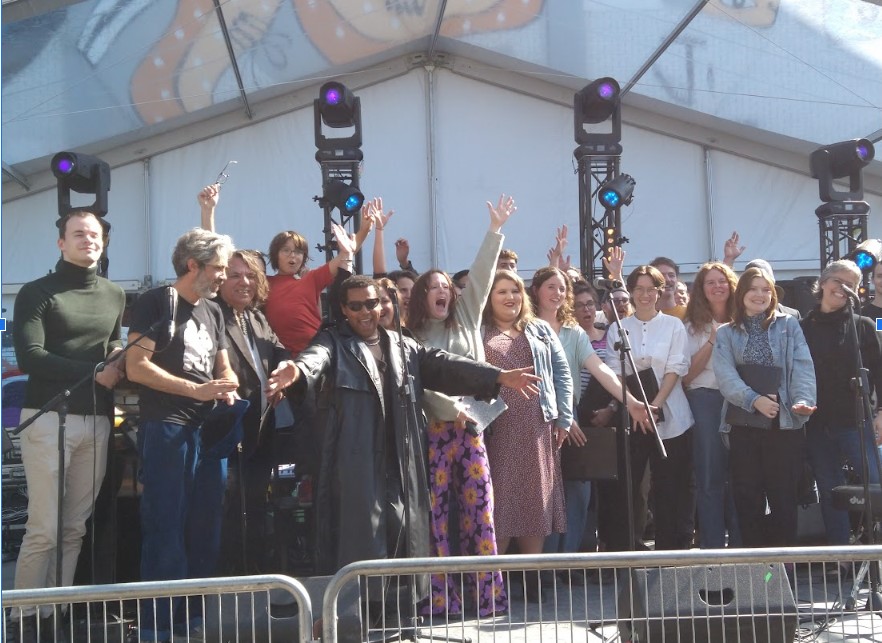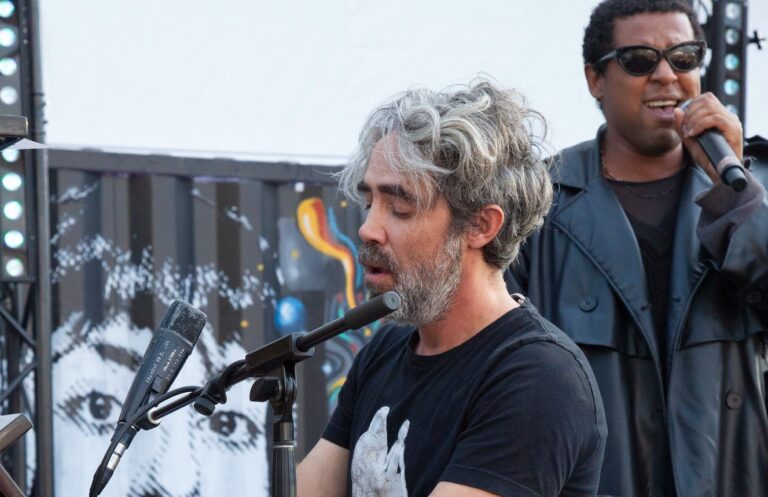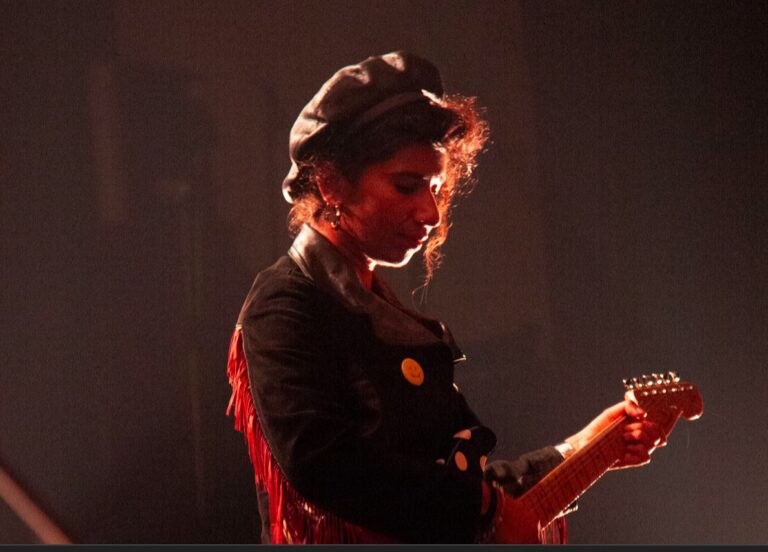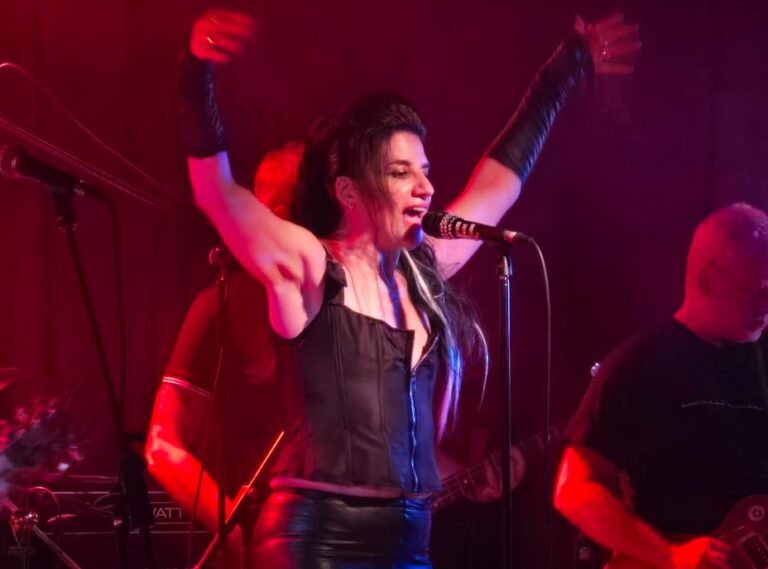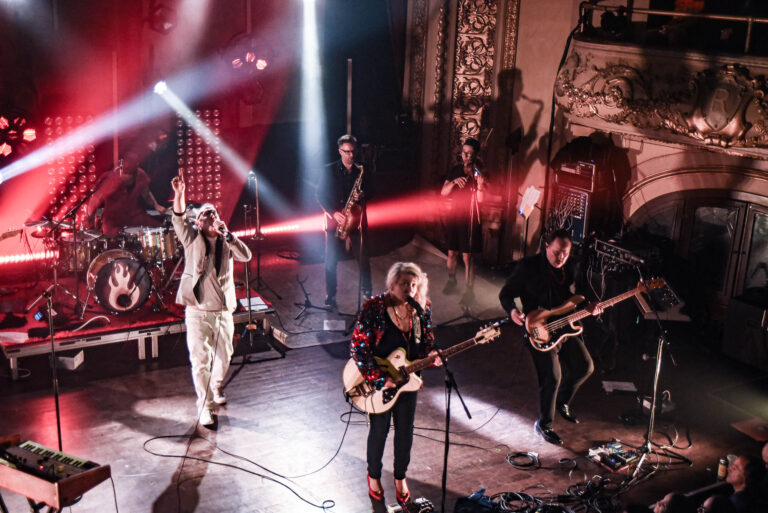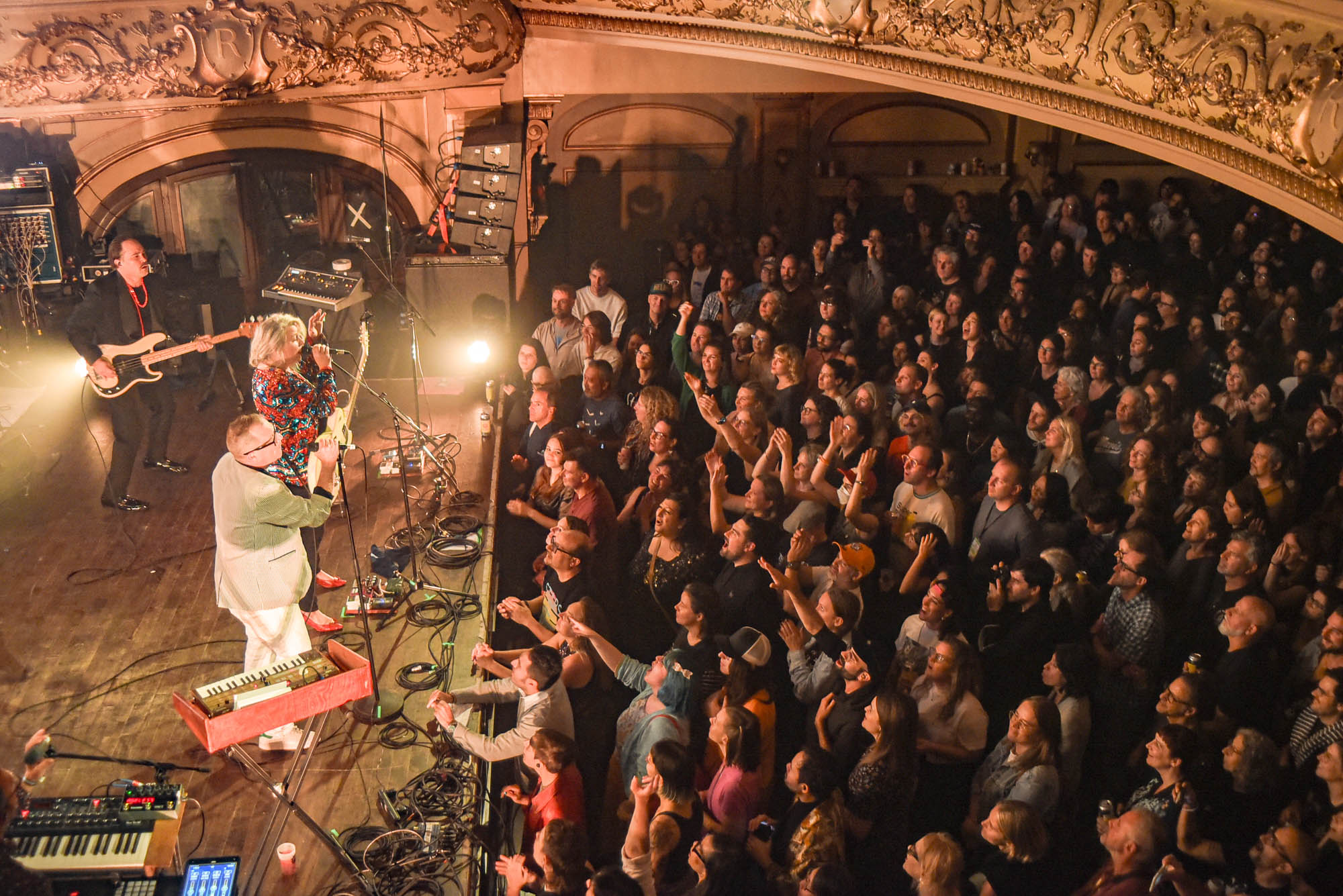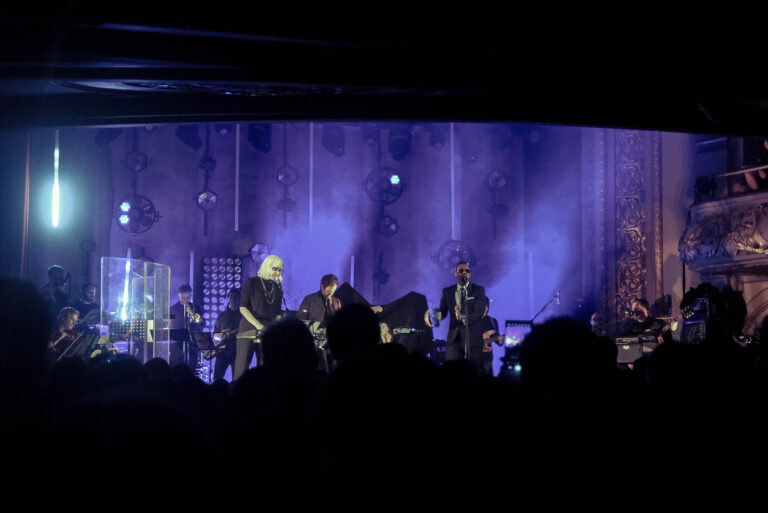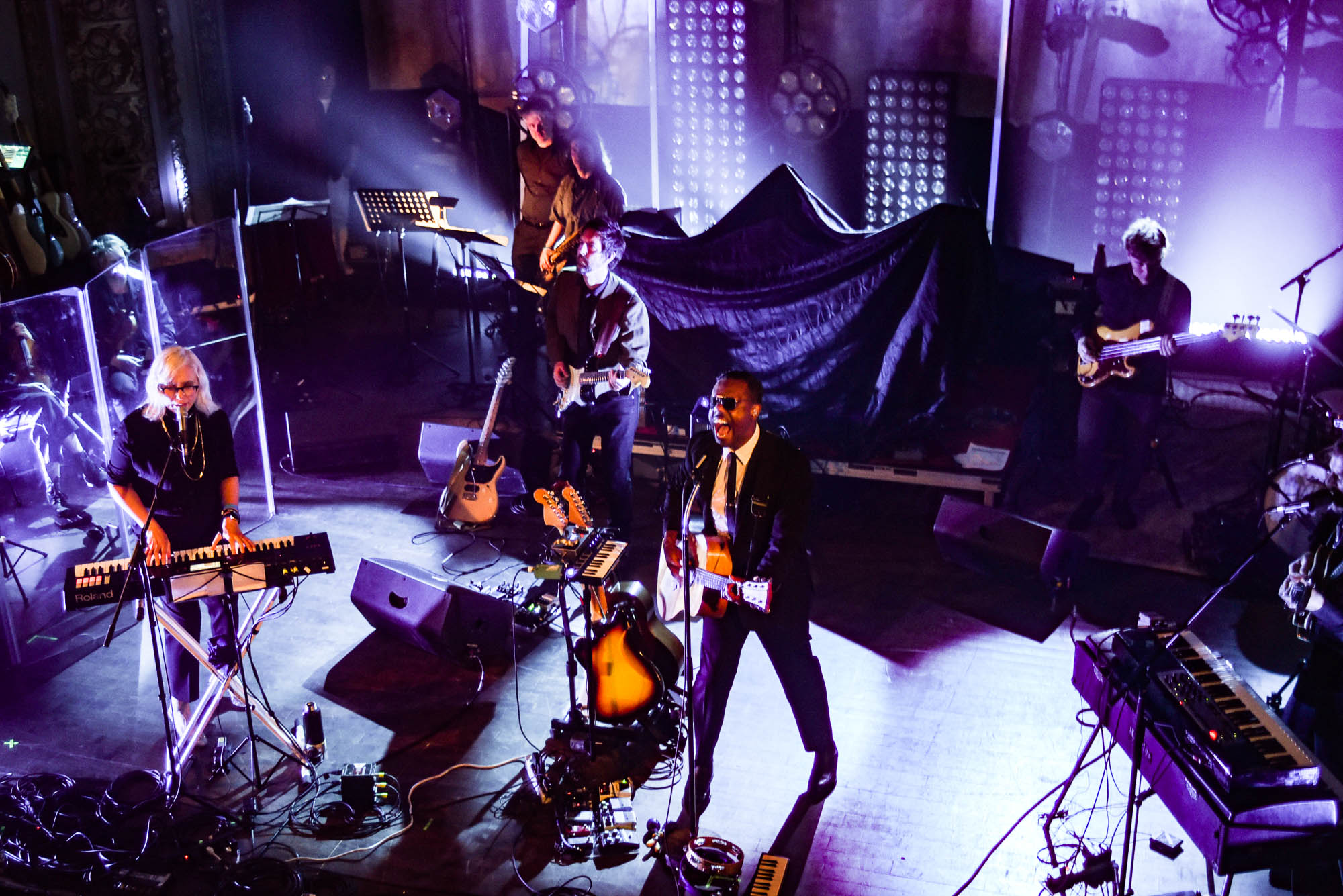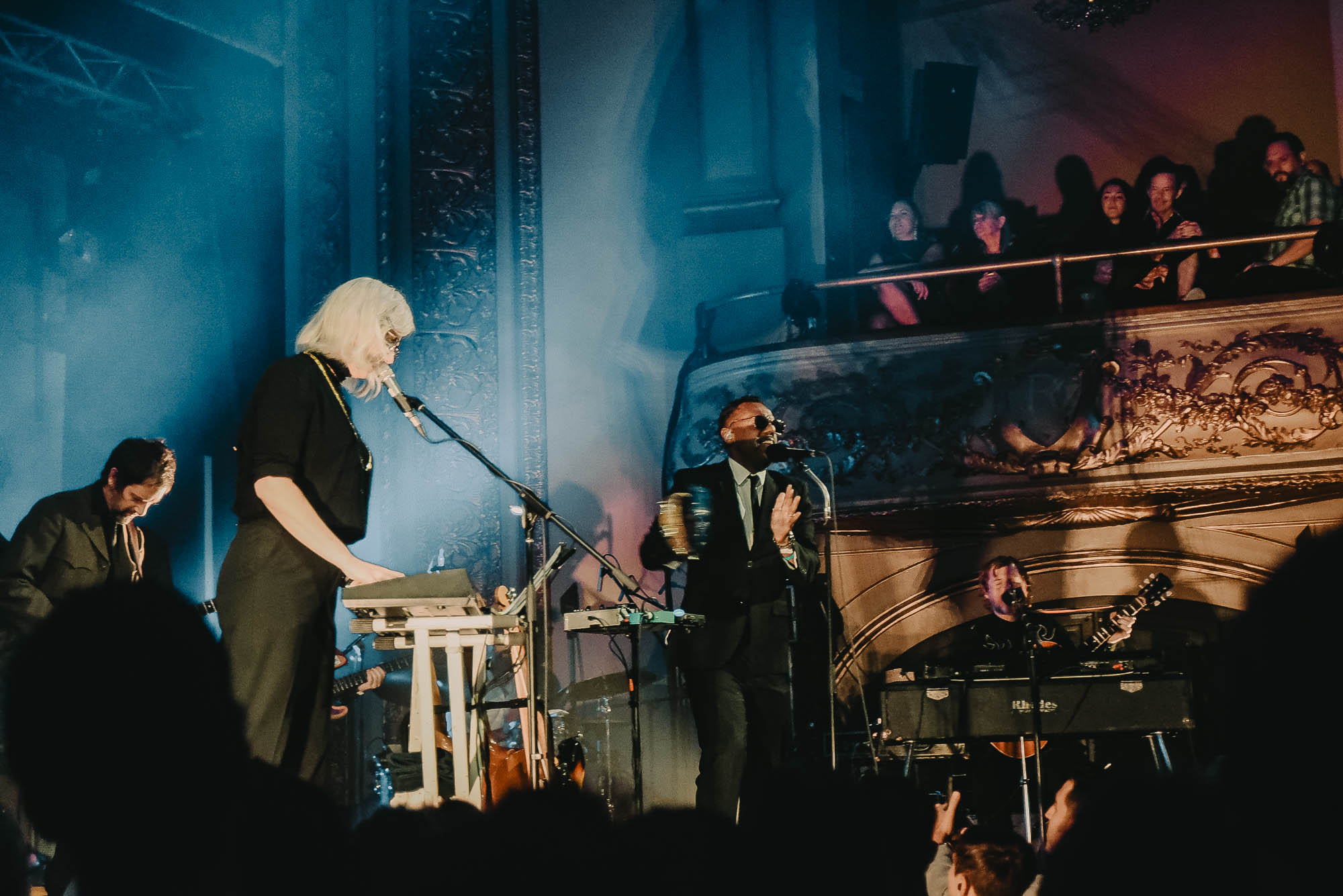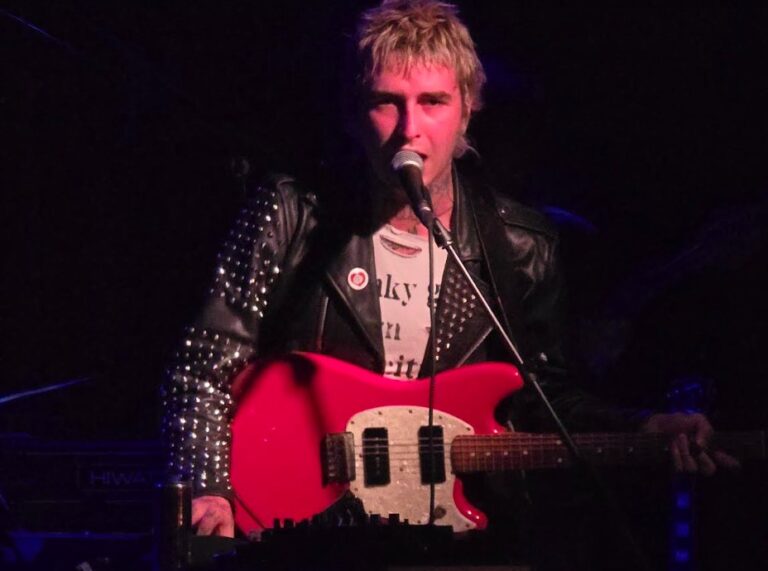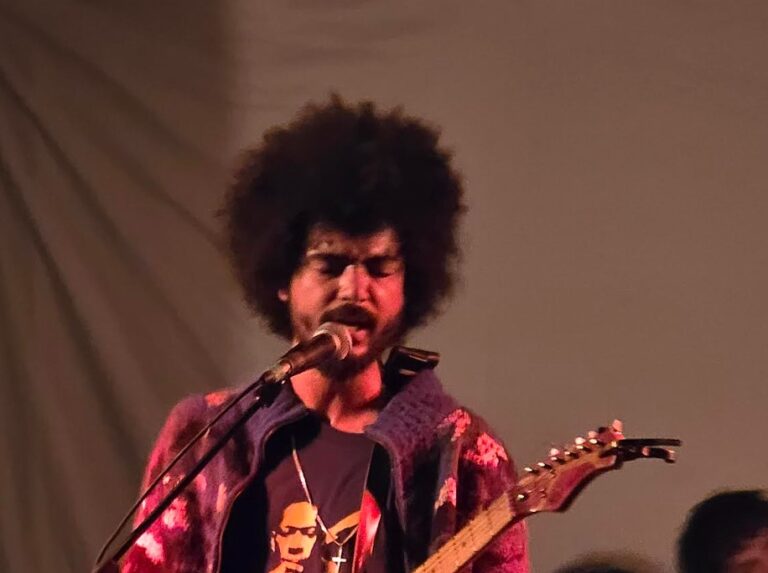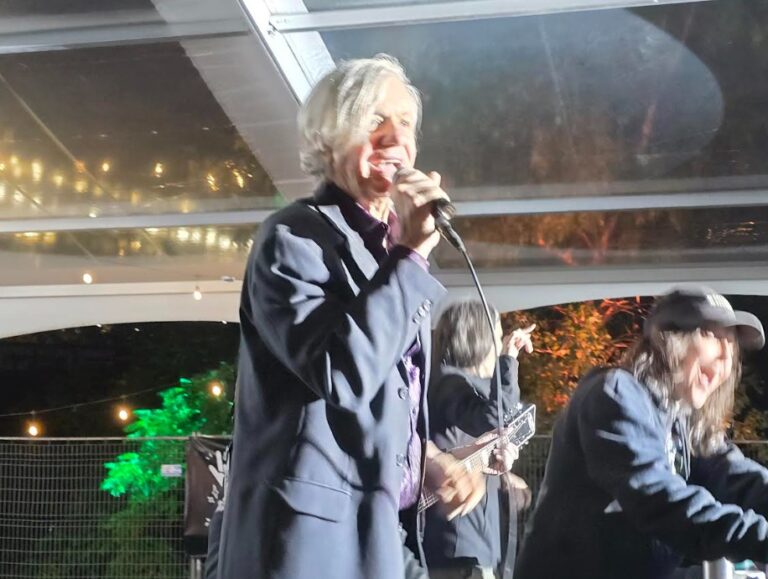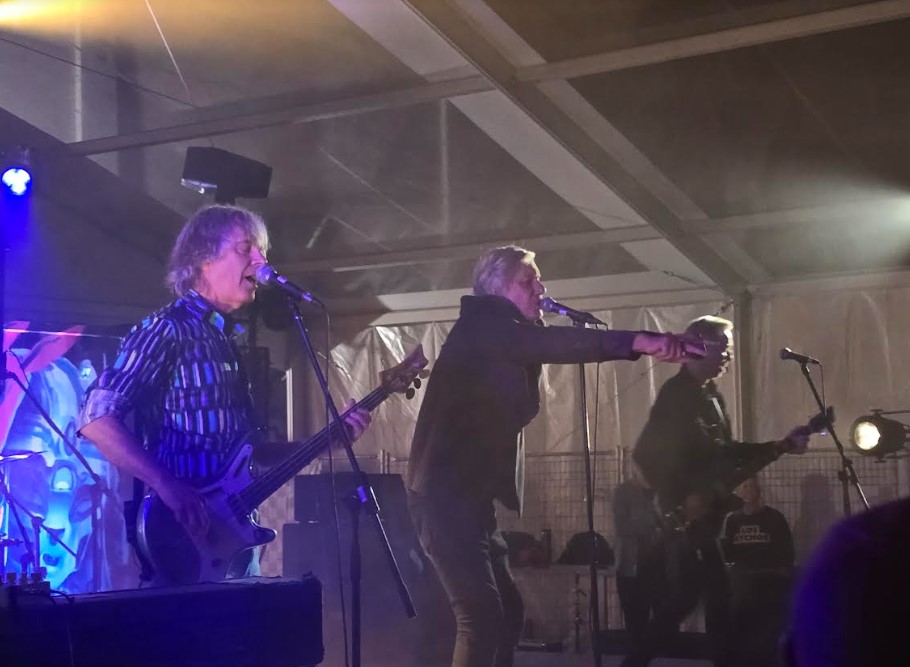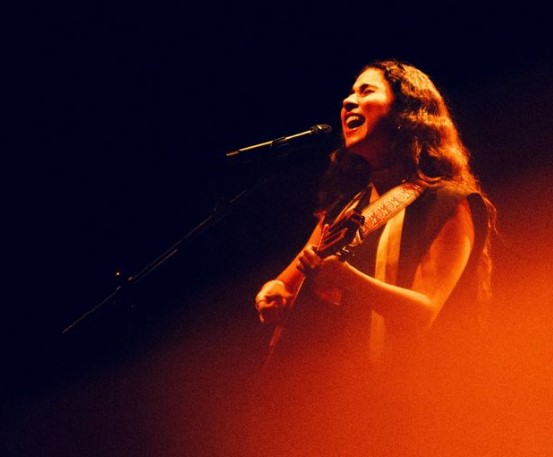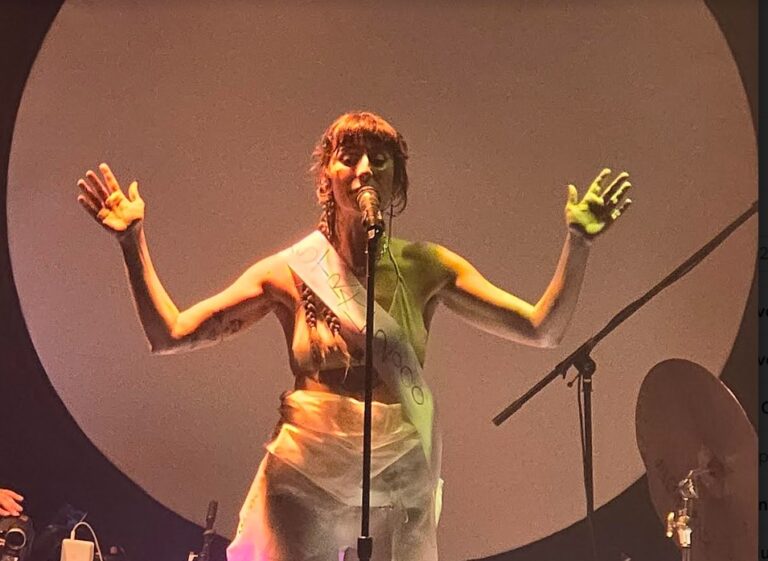Patrick Watson’s Sacred Sunday took place on the last day of POP Montréal. The aim was to introduce children to “sacred” music, in the broadest sense of the term, without restriction of musical genre or religion.
At the start of the show, the composer took the time to explain to his young audience what he considers “sacred music” to be: music that makes you want to look up at the sky and clouds. A fine definition, which has the merit of describing all the works on the program, in all their diversity. Patrick Watson was joined by a host of talented musicians, including Erika Angell, the Barr Brothers, Fernie, Mack MacKenzie, Kiya Tabassian, Joey Burns from Calexico, the Chœur des Mélomanes and the Greenline string quartet.
It’s important to underline the generosity of these artists, who have agreed to perform in what is essentially a free concert. What an opportunity to attend a show featuring so much dedicated talent! The musicians’ professionalism was tangible in the way they interacted with an audience made up of a good number of toddlers. Let’s face it, this is not the easiest audience. No one spared any effort, however, playing to these noisy, dissipated spectators with the same passion as if they were an audience of eminent music lovers. The artists present showed their passion for music and their desire to share it, while remaining aware that children listen in their own way, and that the most important thing is to give them the chance to come into contact with the world of music.
The presentation of the show was adapted to younger audiences: the musicians often spoke to the children, explaining in simple words the origin and history of the songs performed. On the other hand, the music was enjoyable for ears of all ages. At the end of the concert, the audience was invited to join the Chœur des Mélomanes in a rendition of Leonard Cohen’s Hallelujah. An enduring classic that delights children and parents alike.
